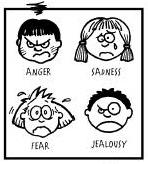30 Days of Thankfulness~Day 21~Fruit!
I am thankful for fruit!
~By Their Fruit They Will Be Known~
 “The fruit of the Spirit is love, joy, peace, patience, kindness, goodness, faithfulness, gentleness and self-control” (Galatians 5:22-23)
“The fruit of the Spirit is love, joy, peace, patience, kindness, goodness, faithfulness, gentleness and self-control” (Galatians 5:22-23)
Love ~ Many parents say they make their parenting choices out of love, and I believe that is so very true, but if God is love as He says He is (and He is!), then our love needs to reflect His in every way, including in our parenting. And how does God show His love? Sacrificially, “For God so loved the world that He gave His only Son, that whoever believes in Him will not perish, but have everlasting life.” (John 3:16). Modeling God’s sacrificial love in our parenting is reflected by making parenting choices based on our children’s needs, not our convenience. Responsive parenting is truly a picture of God’s sacrificial, unconditional love in that, as we respond to our children where they are, (“This is how God showed His great love for us, that Christ died for us while we were still sinners [emphasis added]” Romans 5:8) comforting their cries, guiding their choices, providing for their needs, encouraging their individuality, we are, moment by moment, day by day, sacrificing our lives for them.
sacrificing our lives for them.
Joy ~ Parenting can be a challenge (Ask God. He’s got a lot of children, and they don’t behave all that well!) but taking joy in the journey and in our children makes all the difference. “At that time Jesus, full of joy through the Holy Spirit, said, ‘I praise you, Father, Lord of heaven and earth, because you have hidden these things from the wise and learned, and revealed them to little children.’” (Luke 10:21) Take time out each day to enjoy your children, or, better yet, to tell them what joy they bring to your life and specifically what unique things you enjoy about them!
Peace ~ It’s so, so hard making parenting choices, knowing our actions (or inactions!) will have an incredibly profound effect on a precious little life. God knows and sees and cares about every detail of our lives and our children’s lives.  And, in the same way that we want our little ones to trust us with their needs and concerns and desires, God wants us to trust Him and to have peace in Him. “Do not be anxious about anything, but in every situation, by prayer and petition, with thanksgiving, present your requests to God. And the peace of God, which passes understanding, will guard your hearts and your minds in Christ Jesus.” (Philippians 4:6-7)
And, in the same way that we want our little ones to trust us with their needs and concerns and desires, God wants us to trust Him and to have peace in Him. “Do not be anxious about anything, but in every situation, by prayer and petition, with thanksgiving, present your requests to God. And the peace of God, which passes understanding, will guard your hearts and your minds in Christ Jesus.” (Philippians 4:6-7)
Patience ~ “Be completely humble and gentle; be patient, bearing with one another in love.” (Ephesians 4:2) Children come into our lives as small bundles with big needs who don’t speak or understand our language and then proceed to grow into little people with their own temperaments, plans, and desires. Having patience as a parent should qualify as an extreme sport! But having and modeling patience with our children not only helps us to guide and grow them gently, but also encourages them to exercise patience with themselves and others throughout life…a rare, but lovely gift we can give the world through our children.
Kindness ~ My grandmother’s favorite verse was “Love is patient, love is kind. It does not envy, it does not boast, it is not proud. It does not dishonor others, it is not self-seeking, it is not easily angered, it keeps no record of wrongs.”  (1Corinthians 13:4-5) This is a beautiful example of how the Bible encourages us to treat others…including our children! Taking time out on occasion to examine our parenting practices and evaluate them in terms of how loving and patient and kind we are to our little ones is a vital part of effective parenting. It’s also important to make sure we aren’t parenting ‘for the neighbors,’ in other words, we aren’t making parenting choices based on a ‘who has the best kid’ competition (envy, boastful) or out of embarrassment over our children’s behavior (pride). Are we easily angered by our children? Do we dredge up their mistakes time and time again? If so, consciously working to break those bad habits and replace them with love and patience and kindness will have a dramatically positive impact on our parenting.
(1Corinthians 13:4-5) This is a beautiful example of how the Bible encourages us to treat others…including our children! Taking time out on occasion to examine our parenting practices and evaluate them in terms of how loving and patient and kind we are to our little ones is a vital part of effective parenting. It’s also important to make sure we aren’t parenting ‘for the neighbors,’ in other words, we aren’t making parenting choices based on a ‘who has the best kid’ competition (envy, boastful) or out of embarrassment over our children’s behavior (pride). Are we easily angered by our children? Do we dredge up their mistakes time and time again? If so, consciously working to break those bad habits and replace them with love and patience and kindness will have a dramatically positive impact on our parenting.
Goodness ~ “Still other seed fell on good soil. It came up, grew and produced a crop, some multiplying thirty, some sixty, some a hundred times.” (Mark 4:8) Of all things, shouldn’t our very first desire in parenting our children be to till the soil of their little hearts so tenderly, so carefully, so intentionally that their hearts are “good soil,” ready, eager, and willing to receive the Good News of Jesus’ birth, death, and resurrection for their sins? Instead of focusing on punishing our children’s mistakes, their ‘sins,’ thus negating the Gospel and undermining the very purpose for Jesus’ suffering, shouldn’t we model the grace and mercy and forgiveness we ourselves have been given? So what, exactly, is “good soil”?  Agriculturally speaking, which is what the parable Jesus told was based on, “good soil” is well-drained (not bogged down by over-watering, i.e. over-indulgent parenting), fresh (not over-used or over-worked, i.e. over-bearing parenting), fertilized (filled with good nutrients, i.e. needs met), composted (mixed with rubbish, i.e. sinful!), and enriched (earthy minerals intact, i.e. connected to their source~their parents).
Agriculturally speaking, which is what the parable Jesus told was based on, “good soil” is well-drained (not bogged down by over-watering, i.e. over-indulgent parenting), fresh (not over-used or over-worked, i.e. over-bearing parenting), fertilized (filled with good nutrients, i.e. needs met), composted (mixed with rubbish, i.e. sinful!), and enriched (earthy minerals intact, i.e. connected to their source~their parents).
Faithfulness ~ “The living, the living—they praise you, as I am doing today; parents tell their children about your faithfulness.” (Isaiah 38:19) God is faithful in His promises, faithful in His love, faithful in His parenting. In all things we need to reflect His character to our children so that when we tell them about ‘His faithfulness’ it isn’t only in words, but also in deeds. And what is faithfulness, exactly? It is defined as constancy, dependability, care, trustworthiness, devotion, honor, attachment, commitment. So let us parents, as reflections of God, be faithful to exhibit constancy, dependability, care, trustworthiness, devotion, honor, attachment, and commitment in our parenting choices!
Gentleness ~ “Let your gentleness be evident to all”…except your children. No, of course the Bible doesn’t say that! God actually instructs us to “Let your gentleness be evident to ALL (emphasis added)” in Philippians 4:5. Tender, compassionate, merciful, warmhearted, sensitive, approachable, good-humored…these are all synonyms for gentleness, and gentle parenting reflects all of these qualities. Let’s take a look at the antonyms (opposites) of the word gentle in the thesaurus~harsh, tough, violent, sharp, rigid, severe, unrelenting, unforgiving, punitive, unpleasant, pitiless, stern. “Let your gentleness be evident to all” including (especially!) our littlest, most defenseless, and truly precious gifts from God~our children!
God actually instructs us to “Let your gentleness be evident to ALL (emphasis added)” in Philippians 4:5. Tender, compassionate, merciful, warmhearted, sensitive, approachable, good-humored…these are all synonyms for gentleness, and gentle parenting reflects all of these qualities. Let’s take a look at the antonyms (opposites) of the word gentle in the thesaurus~harsh, tough, violent, sharp, rigid, severe, unrelenting, unforgiving, punitive, unpleasant, pitiless, stern. “Let your gentleness be evident to all” including (especially!) our littlest, most defenseless, and truly precious gifts from God~our children!
Self-control ~ “Like a city whose walls are broken through is a person who lacks self-control.” (Proverbs 25:28) City walls being broken through was a tragedy of great proportions in the Bible, whereas a city gladly throwing open its gates to welcome its King was a time of rejoicing. The ‘city walls’ were used metaphorically  in the Bible to refer to a person’s will. Many times the words ‘break a child’s will’ are thrown around and spoken as if directly from the mouth of God. But God, as our heavenly Parent, doesn’t seek to break our wills. Instead, He teaches us to trust Him by His own love, joy, peace, patience, kindness, goodness, faithfulness, gentleness and by His self-control in not stomping us out of existence as we deserve by our sinfulness. And, after building that trust-relationship with us, He gently calls us to joyfully and voluntarily lay down our wills out of trust and gratitude and to open our hearts and minds and lives to Him, welcoming in our King. This is the heart of trust-based obedience!
in the Bible to refer to a person’s will. Many times the words ‘break a child’s will’ are thrown around and spoken as if directly from the mouth of God. But God, as our heavenly Parent, doesn’t seek to break our wills. Instead, He teaches us to trust Him by His own love, joy, peace, patience, kindness, goodness, faithfulness, gentleness and by His self-control in not stomping us out of existence as we deserve by our sinfulness. And, after building that trust-relationship with us, He gently calls us to joyfully and voluntarily lay down our wills out of trust and gratitude and to open our hearts and minds and lives to Him, welcoming in our King. This is the heart of trust-based obedience!
Related links:
Spare the Rod: The Heart of the Matter
November 21, 2011 | Categories: attachment parenting, Bible, birth, Christian, Christian parenting, food, gentle discipline, gentle parenting, Jesus, natural parenting, newborn, parenting guide, positive discipline | Tags: attachment, attachment parenting, Bible, Christian, Christian parenting, discipline, gentle discipline, gentle parenting, Jesus, parenting, positive parenting, sacrifice, sacrificial parenting | Leave A Comment »  Award-winnning author, L.R.Knost, is the founder and director of the children's rights advocacy and family consulting group, Little Hearts/Gentle Parenting Resources, and Editor-in-Chief of Holistic Parenting Magazine. Books by L.R.Knost include Whispers Through Time: Communication Through the Ages and Stages of Childhood ; Two Thousand Kisses a Day: Gentle Parenting Through the Ages and Stages ; The Gentle Parent: Positive, Practical, Effective Discipline ; and Jesus, the Gentle Parent: Gentle Christian Parenting the first four books in the Little Hearts Handbook gentle parenting series, and children’s picture books Petey’s Listening Ears and the soon-to-be-released Grumpykins series.
Award-winnning author, L.R.Knost, is the founder and director of the children's rights advocacy and family consulting group, Little Hearts/Gentle Parenting Resources, and Editor-in-Chief of Holistic Parenting Magazine. Books by L.R.Knost include Whispers Through Time: Communication Through the Ages and Stages of Childhood ; Two Thousand Kisses a Day: Gentle Parenting Through the Ages and Stages ; The Gentle Parent: Positive, Practical, Effective Discipline ; and Jesus, the Gentle Parent: Gentle Christian Parenting the first four books in the Little Hearts Handbook gentle parenting series, and children’s picture books Petey’s Listening Ears and the soon-to-be-released Grumpykins series.
Gentle Discipline Resource Guide
[Portions reprinted from The Gentle Parent: Positive, Practical, Effective Discipline by L.R.Knost available November 2013; Two Thousand Kisses a Day: Gentle Parenting Through the Ages and Stages and Whispers Through Time: Communication Through the Ages and Stages of Childhood now available on Amazon.]
 Many people believe that gentle parenting is a form of unparenting, but nothing could be further from the truth. Gentle parenting is involved parenting ~interactive, engaged, active parenting. It takes focused attention, planning, participation, research, and so much more to be an empathetic, responsive parent who is in tune with their child’s needs and who is prepared to make whatever sacrifices are necessary to meet those needs. That said, in any home, like in any civilized society, boundaries are necessary for everyone’s safety and comfort. It is in the choosing and enforcing of those boundaries that gentle parenting distinguishes itself. In a gently parented home, boundaries are focused on guiding rather than controlling children and are enforced through empathetic and creative resolutions rather than harsh punitive consequences. If you’d like to transition to a more gentle mode of parenting, but don’t know where to start, below are links to alternatives to punishment, and here is a guide to help you set yourself up for success in your journey to gentle parenting…12 Steps to Gentle Parenting.
Many people believe that gentle parenting is a form of unparenting, but nothing could be further from the truth. Gentle parenting is involved parenting ~interactive, engaged, active parenting. It takes focused attention, planning, participation, research, and so much more to be an empathetic, responsive parent who is in tune with their child’s needs and who is prepared to make whatever sacrifices are necessary to meet those needs. That said, in any home, like in any civilized society, boundaries are necessary for everyone’s safety and comfort. It is in the choosing and enforcing of those boundaries that gentle parenting distinguishes itself. In a gently parented home, boundaries are focused on guiding rather than controlling children and are enforced through empathetic and creative resolutions rather than harsh punitive consequences. If you’d like to transition to a more gentle mode of parenting, but don’t know where to start, below are links to alternatives to punishment, and here is a guide to help you set yourself up for success in your journey to gentle parenting…12 Steps to Gentle Parenting.

When Things Get Physical: Hitting, Throwing, Kicking, and Biting
The concept of using consequences, physical or otherwise, as a deterrent for hitting is based on the misconception that small children have the capacity for forethought (i.e. If I hit, I will get in trouble. Therefore I will not hit.) and that they are choosing to disobey. The fact is that the prefrontal cortex, where reasoning, logic, and forethought take place, is highly immature in toddlers and preschoolers and actually doesn’t develop fully until the mid-twenties! Small children act instinctively and impulsively even when not stressed simply because that is what they are developmentally capable of, but when they are stressed even the small amount of self-control they may have attained flies right out the window, and before they know it (literally!) they’ve reacted physically to their stress. Read more
 Testing the Boundaries~What’s a Parent to Do?
Testing the Boundaries~What’s a Parent to Do?
Typically, I advise parents to use Time-Ins instead of Time-Outs in order to connect-to-correct, but there is one area that I advise the use of Time-Outs…the ‘Time-Out Toy Box!’ When a toy is misused (i.e. thrown, used to hit, drawn on, fought over, etc) and a gentle redirection has been given, the next step for the toy is to be put in the ‘Time-Out Toy Box.’ Little ones generally find the concept of a toy being put in Time-Out rather humorous and go along with the removal without a fuss (the toy can be returned after an exaggeratedly stern warning to the toy letting it know what is expected of it and that it must listen to ‘the boss’ ~the child, lol. They love that!), but remember to communicate, listen, and be flexible. If the removal of a toy brings about a strong negative response, it may be that the inappropriate behavior was more than just…Read more
Few things ignite a parent’s temper like defiance. It feels like a slap in the face, a direct challenge to our authority. Power card…played. Gauntlet…thrown. Challenge…accepted?
Time out! No, not time-out as in punish your child, but time out as in hit the parental pause button, take a step back, assess the situation, and get some adult perspective.
There are three things to consider…Read more

Toddlers, Tantrums, and Time-In’s, Oh My!
Punishing them, yelling at them, sending them to their room, or putting them in time-out disconnects them even further from their source of security and not only delays a resolution of the issue, but misses an opportunity to equip them with the tools they need to handle future problems.
One effective tool for use in helping little ones cope with big emotions is a Calm-Me-Jar…Read more

Parenting a Strong-Willed Child
There are some children who are born into the world with the incredible life-gift of a strong will and an indomitable spirit. These children are often deeply misunderstood, and there are rows of books lining bookstore shelves with instructions about how to break their will, how to subdue their spirit, how to force their obedience. What an incredible loss of leadership, passion, and insight this world suffers when parents follow these punitive parenting practices. Not only can we parent these gifted children with gentleness and respect, but the gifts we get in return are priceless! …Read more
 Easy Peasy DIY Parenting Tools
Easy Peasy DIY Parenting Tools
I-spy Water Jars, Quiet Bags, Calm-Me-Jars, Cozy Corners, Punch Bags, and more…Read more
 To a Toddler Sharing is a 4 Letter Word~MINE!
To a Toddler Sharing is a 4 Letter Word~MINE!
Almost from the moment a baby is born, parents teach them not to share. “No, no, sweetie. That’s mommy’s” and “That’s daddy’s, not yours” accompanied by the removal of whatever the forbidden item is are daily realities for little ones. This is unavoidable, of course, since bacteria-ridden keys don’t belong in little mouths and iphones don’t work well when soaked in drool.
But the challenge comes when our little ‘reflectors’ are expected to share their toys with anyone and everyone who takes a liking to them…Read more
 Spare the Rod: The Heart of the Matter
Spare the Rod: The Heart of the Matter
One of the hot-button issues when it comes to discipline and children is spanking, and the more Christian and conservative the audience, the more hot the debate becomes! There are no verses in the New Testament that support spanking, flogging, whipping, or otherwise hitting children. In the Old Testament there are…Read more
 Your Baby isn’t Trying to Annoy You; He’s Trying to Communicate! From the moment a child enters the world, they are trying to communicate. Crying, grunting, making eye contact, mirroring expressions, all of these things are the instinctive tools built into infants to reach out into a brand new world and make contact. They can do no more. It is entirely up to the parent to make the connection, to respond, to build those all-important ‘lines of communication’ that will be so vitally important to parents in later childhood. Communication is not something that just happens. It is not something that begins when a child becomes verbal, and it’s not a product of a child’s advancing maturity. Communication is a process, a relational building block, a result of intentional and responsive parenting. Read more
Your Baby isn’t Trying to Annoy You; He’s Trying to Communicate! From the moment a child enters the world, they are trying to communicate. Crying, grunting, making eye contact, mirroring expressions, all of these things are the instinctive tools built into infants to reach out into a brand new world and make contact. They can do no more. It is entirely up to the parent to make the connection, to respond, to build those all-important ‘lines of communication’ that will be so vitally important to parents in later childhood. Communication is not something that just happens. It is not something that begins when a child becomes verbal, and it’s not a product of a child’s advancing maturity. Communication is a process, a relational building block, a result of intentional and responsive parenting. Read more
 Tots to Teens~Communication through the Ages and Stages
Tots to Teens~Communication through the Ages and Stages
The evolution of children’s communication proceeds at a steady and relatively predictable pace, though the timing is influenced by factors such as individual personality, cognitive development, home environment, etc. Here’s what to expect through the ages and stages…
 Babes and Boundaries~A Gentle Parenting Perspective Gentle parenting doesn’t mean parenting without boundaries! Believe it or not, the foundation for discipline (guiding, leading, teaching…NOT punishment ) begins in the newborn and infancy stages. When parents respond quickly, consistently, and gently to their baby’s cries, the trust relationship that the parent is establishing becomes the cornerstone for later discipline. Boundaries need to be established for a child’s safety and growth into a successful citizen of our world. A child who is secure in the knowledge that he doesn’t have to fight to be heard or to have his needs met is more open and adaptable to limits. And when the ‘limit-setter’ is a person the child trusts, the enforcement of those boundaries becomes a matter of connection and communication instead of conflict and struggle. So, what might setting and enforcing boundaries using gentle parenting look like in real life? Read more
Babes and Boundaries~A Gentle Parenting Perspective Gentle parenting doesn’t mean parenting without boundaries! Believe it or not, the foundation for discipline (guiding, leading, teaching…NOT punishment ) begins in the newborn and infancy stages. When parents respond quickly, consistently, and gently to their baby’s cries, the trust relationship that the parent is establishing becomes the cornerstone for later discipline. Boundaries need to be established for a child’s safety and growth into a successful citizen of our world. A child who is secure in the knowledge that he doesn’t have to fight to be heard or to have his needs met is more open and adaptable to limits. And when the ‘limit-setter’ is a person the child trusts, the enforcement of those boundaries becomes a matter of connection and communication instead of conflict and struggle. So, what might setting and enforcing boundaries using gentle parenting look like in real life? Read more
 Parenting in Public~What’s in Your Quiet Bag? More and more public places are becoming child un-friendly with snarky signs saying they’ll give your child an espresso and a pony if you don’t control him or charge you extra if you dare to enter their establishment and support their business with your hard-earned money or even flat out ban you altogether if you bring ‘the beast’ out in public with you! So what’s a parent to do? Read more
Parenting in Public~What’s in Your Quiet Bag? More and more public places are becoming child un-friendly with snarky signs saying they’ll give your child an espresso and a pony if you don’t control him or charge you extra if you dare to enter their establishment and support their business with your hard-earned money or even flat out ban you altogether if you bring ‘the beast’ out in public with you! So what’s a parent to do? Read more
 Discipline & Behavior via Dr. Sears
Discipline & Behavior via Dr. Sears
You probably never thought of attachment tools, such as breastfeeding and babywearing, as being acts of discipline, but they are. Attachment parenting is like immunizing your child against emotional diseases later on. Your knowledge of your child becomes like a sixth sense enabling you to anticipate and control situations to keep your kids out of trouble. Discipline is based on building the right relationship with a child more than using the right techniques.
 Parenting toddlers made simple. via T.E.A.C.H. Through Love
Parenting toddlers made simple. via T.E.A.C.H. Through Love
Toddlers can be loud, boisterous, erratic, funny, messy, witty and smart all at the same time. They soak up everything they see and hear and that includes our reactions to their actions.
What Children Need Most When They Deserve It The Least via Happy Families
Parents prefer not to have their authority questioned. So rather than considering why a child may be resisting, they up the ante, doing their best puffer-fish impersonation, and make threats.
 Positive Parenting in Action: Exploration/Danger via Positive Parenting
Positive Parenting in Action: Exploration/Danger via Positive Parenting
Don’t mistake independence for defiance. Some toddlers are more strong-willed and independent than others. My first son was very mellow and content under my wing, while my second wanted independence early. He doesn’t want to hold my hand in parking lots (we’ll address that one!) because he says “I can walk by myself!”
With a healthy relationship based on open, honest communication, issues can be addressed as they arise and in a respectful and timely manner instead of a teen feeling the need to go ‘underground’ with their behavior or problems. Here are some practical tips for raising teens in a respectful and peaceful manner.
 Gentle Discipline: So what DO you do? via The Path Less Taken
Gentle Discipline: So what DO you do? via The Path Less Taken
Some people, for any number of reasons, do not know about alternatives. They don’t know that there’s another way. Some people want to do things differently, and want to break their cycle, but they honestly do not know where to start.
 Proactive Discipline and Well-behaved Children via Gentle Christian Mothers
Proactive Discipline and Well-behaved Children via Gentle Christian Mothers
Most people seem to think that physical punishment is the only way to elicit good behavior and assume that children who aren’t given prompt and regular spankings will be out of control “monsters”. Well, my kids are not perfect little robots. They have to be reminded to do things and they fight with each other. But my focus is not so much on obedience (do what I say right now!) as you might have expected. Instead my focus is on raising kids who are generally polite and content and care about how those around them feel. And that’s what I’ve got, kids who are noticeably considerate to adults and other children alike.
 6 Steps to Stop Yelling Dr. Laura Markham/Aha Parenting.com
6 Steps to Stop Yelling Dr. Laura Markham/Aha Parenting.com
We all know that our kids respond better if we don’t yell. Instead of escalating a difficult situation, if we can stay calm, it settles everyone else down. Our relationship with our child strengthens. They cooperate more. They start to control their own emotions more. Bottom line: How can you expect your child to control his own emotions if you don’t control yours?
 The One Thing You Can Do That Will Drastically Improve Your Interactions with Children via Real Child Development
The One Thing You Can Do That Will Drastically Improve Your Interactions with Children via Real Child Development
If there was one thing you could do differently that would drastically improve your interactions with children would you want to know? Would you like to know the key that would increase cooperation, reduce tantrums, fighting and negative behavior?
 Gems via Mothering by Grace
Gems via Mothering by Grace
This is a FAST way of making your child feel loved, valued and secure. GEMs help your kids feel affirmed and noticed, so their need to get your attention in negative ways decreases. Your energy levels will rise as you enjoy your child and remember what it’s all about. By focusing on your child and meeting their emotional needs for connection you are actually taking care of yourself at the same time. It takes only a few minutes to have a GEM, yet the positive effects last for ages.
 Why Spanking is Never Okay via Peaceful Parenting
Why Spanking is Never Okay via Peaceful Parenting
Scientific research shows that physical punishment does not work in the long run, is associated with an increased risk for many behavioral and psychological problems, and is simply unnecessary given that we have non-violent discipline techniques that are very effective.
 Gentle Discipline Toolbox via Dulce de Leche
Gentle Discipline Toolbox via Dulce de LecheGentle, effect tools for your parenting toolbox!
Related links:
November 21, 2011 | Categories: adolescence, attachment parenting, babywearing, Bible, birth, breastfeeding, children's books, Christian, Christian parenting, cosleeping, gentle discipline, gentle parenting, Jesus, parenting guide, positive discipline | Tags: adolescence, attachment parenting, babywearing, Bible, breastfeeding, childhood, children, Christian, Christian parenting, discipline, gentle discipline, gentle parenting, Jesus, newborn, parenting, play, positive, positive parenting, rebellion | 38 Comments »  Award-winnning author, L.R.Knost, is the founder and director of the children's rights advocacy and family consulting group, Little Hearts/Gentle Parenting Resources, and Editor-in-Chief of Holistic Parenting Magazine. Books by L.R.Knost include Whispers Through Time: Communication Through the Ages and Stages of Childhood ; Two Thousand Kisses a Day: Gentle Parenting Through the Ages and Stages ; The Gentle Parent: Positive, Practical, Effective Discipline ; and Jesus, the Gentle Parent: Gentle Christian Parenting the first four books in the Little Hearts Handbook gentle parenting series, and children’s picture books Petey’s Listening Ears and the soon-to-be-released Grumpykins series.
Award-winnning author, L.R.Knost, is the founder and director of the children's rights advocacy and family consulting group, Little Hearts/Gentle Parenting Resources, and Editor-in-Chief of Holistic Parenting Magazine. Books by L.R.Knost include Whispers Through Time: Communication Through the Ages and Stages of Childhood ; Two Thousand Kisses a Day: Gentle Parenting Through the Ages and Stages ; The Gentle Parent: Positive, Practical, Effective Discipline ; and Jesus, the Gentle Parent: Gentle Christian Parenting the first four books in the Little Hearts Handbook gentle parenting series, and children’s picture books Petey’s Listening Ears and the soon-to-be-released Grumpykins series.











